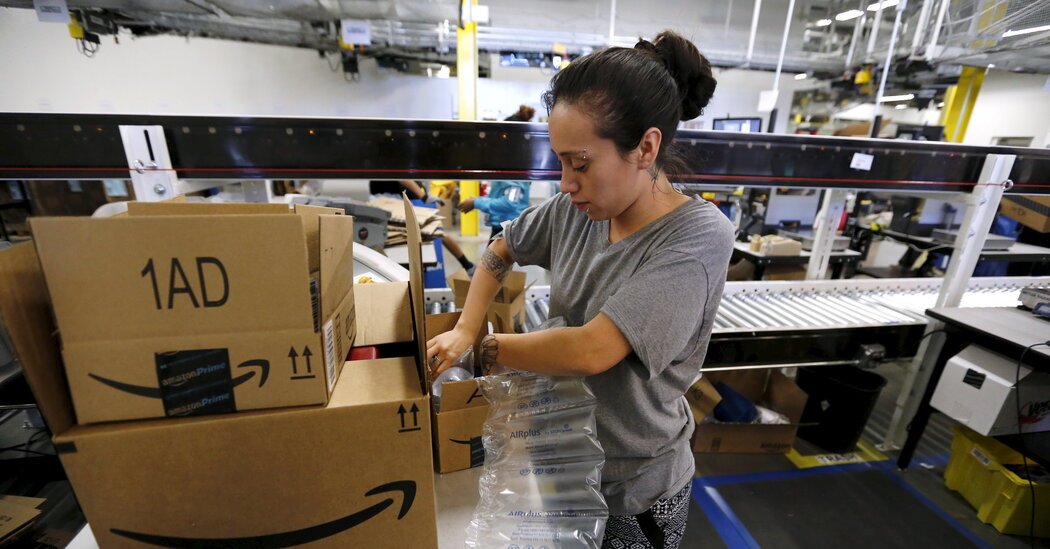They’re a familiar sight in Amazon packages: The plastic air pillows designed to keep products safe in transit, but that also end up in landfills by the billions.
Now, under pressure from environmentalists to cut down on its use of plastic packaging, the world’s largest online retailer is close to replacing all of its puffy plastic pillows with recycled paper filler.
Amazon says the move will avoid the use of almost 15 billion air pillows a year in North America. It is the Seattle-based retail giant’s “largest plastic packaging reduction effort” to date, the retail giant said in a news release on Thursday.
It’s just one way companies are responding to an outcry from people and environmental groups over retailers’ use of plastic packaging, particularly as online shopping continues to surge.

Oceana, the ocean conservancy group that has long sparred with Amazon over its plastic use, called the move “welcome news for the oceans and the company’s customers.” But it called for further reductions in single-use packaging, like the padded plastic envelopes that Amazon continues to use.
The pillows are made from plastic film, which scientists have found is the most common form of plastic litter in the sea and seabed close to the shore. Plastic film can be deadly to wildlife including sea turtles and sea birds. And unlike paper alternatives, plastic film generally can’t be composted or recycled in curbside programs.
A recent report by Oceana found that protective packaging like air pillows made up more than one-third of global e-commerce packaging by weight.
Thursday’s announcement covers the United States, Amazon’s largest market, as well as Canada, and Mexico, which together account for more than 70 percent of the retailer’s global sales. Amazon has already replaced about 95 percent of its plastic pillows with paper in those markets, it said, and is working toward fully removing them from use by the end of the year.
Amazon says it has already been phasing out its use of plastic air pillows in Australia, as well as nearly all single-use-plastic packaging in India and throughout Europe. But those changes have been slower to come in the rest of the world. In 2022, Amazon reported using almost 12 percent less plastic packaging around the world compared with the previous year.
Environmental and consumer groups have been working on many fronts to stem the tide of plastic packaging waste. Earlier this year, groups pushed for a New York State bill that aims to reduce the use of plastic packaging by 50 percent over 12 years by requiring the manufacturers to either find more sustainable options or pay a fee.
The bill, which would also ban some toxic chemicals currently used in packaging, such as per- and polyfluoroalkyl substances, vinyl chloride and formaldehyde, cleared the State Senate but wasn’t brought up to a vote in the Assembly. California, Oregon, Maine and Colorado have passed similar legislation.
Of course, there’s the tricky question: What about all the extra paper Amazon will use?
Paper is recyclable and biodegradable, an improvement over plastic. Still, the climate impact of paper can vary greatly, depending on what’s used in the pulp, according to a 2021 United Nations report that compared single-use plastic with other forms of packaging.
And if paper bags end up in landfill, they can contribute to planet-warming methane pollution as they biodegrade. On the other hand, paper is more likely to actually be recycled. And if plastic bags end up being incinerated, they release toxic chemicals.
Amazon, for its part, says it is moving ahead on a multiyear effort to remove all plastic delivery packaging from its North America shipment centers. One center, in Ohio, has already moved away from plastic entirely, according to the company.
And some extra good news for shoppers? Amazon said its engineers tested how effective paper is at protecting products during transit and found that paper was just as good, if not better than, plastic pillows.










